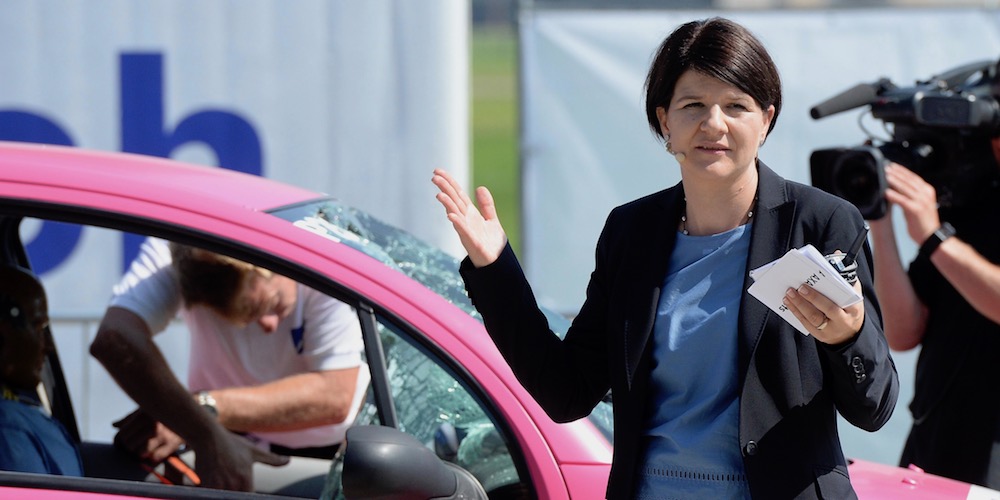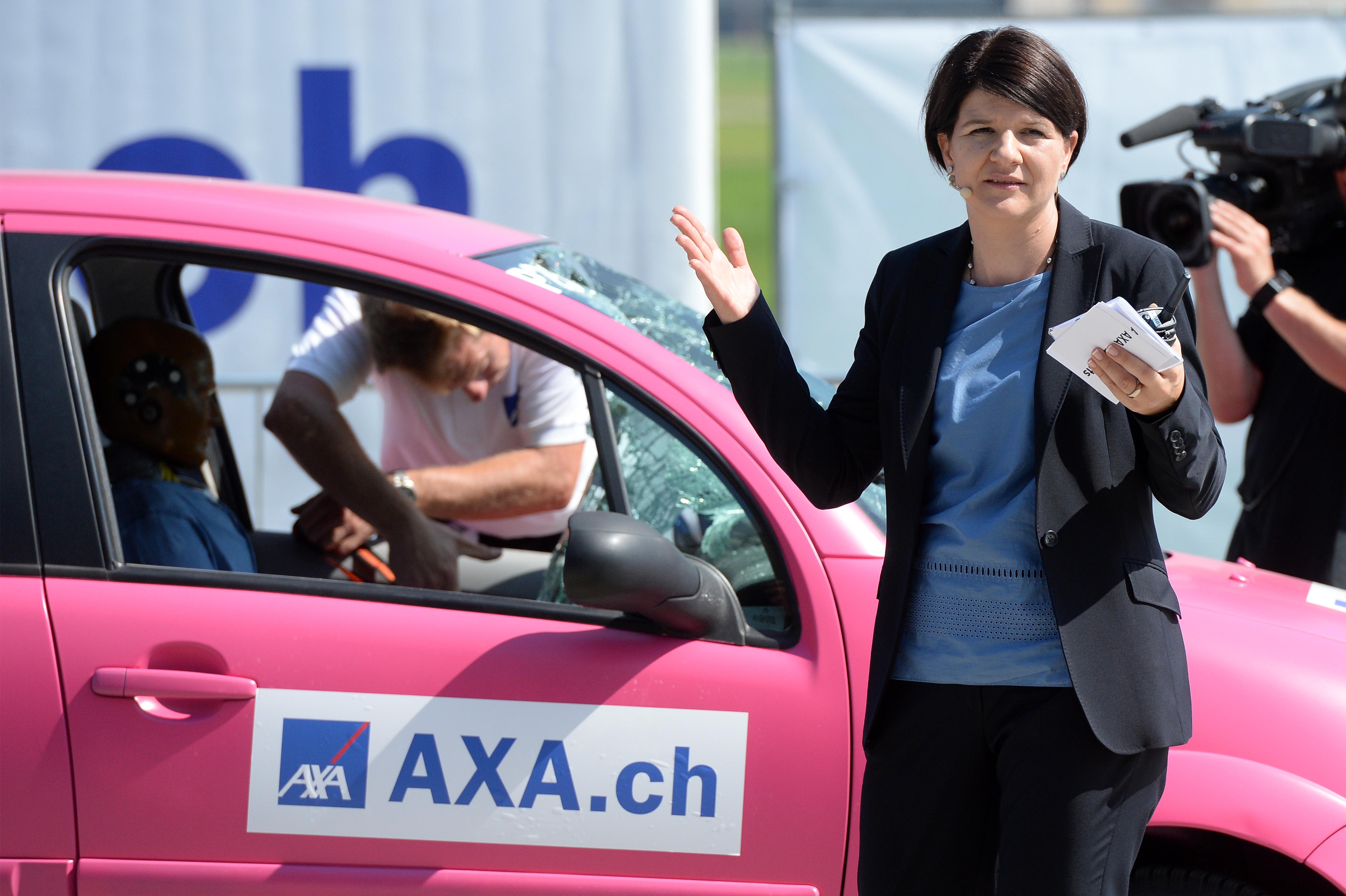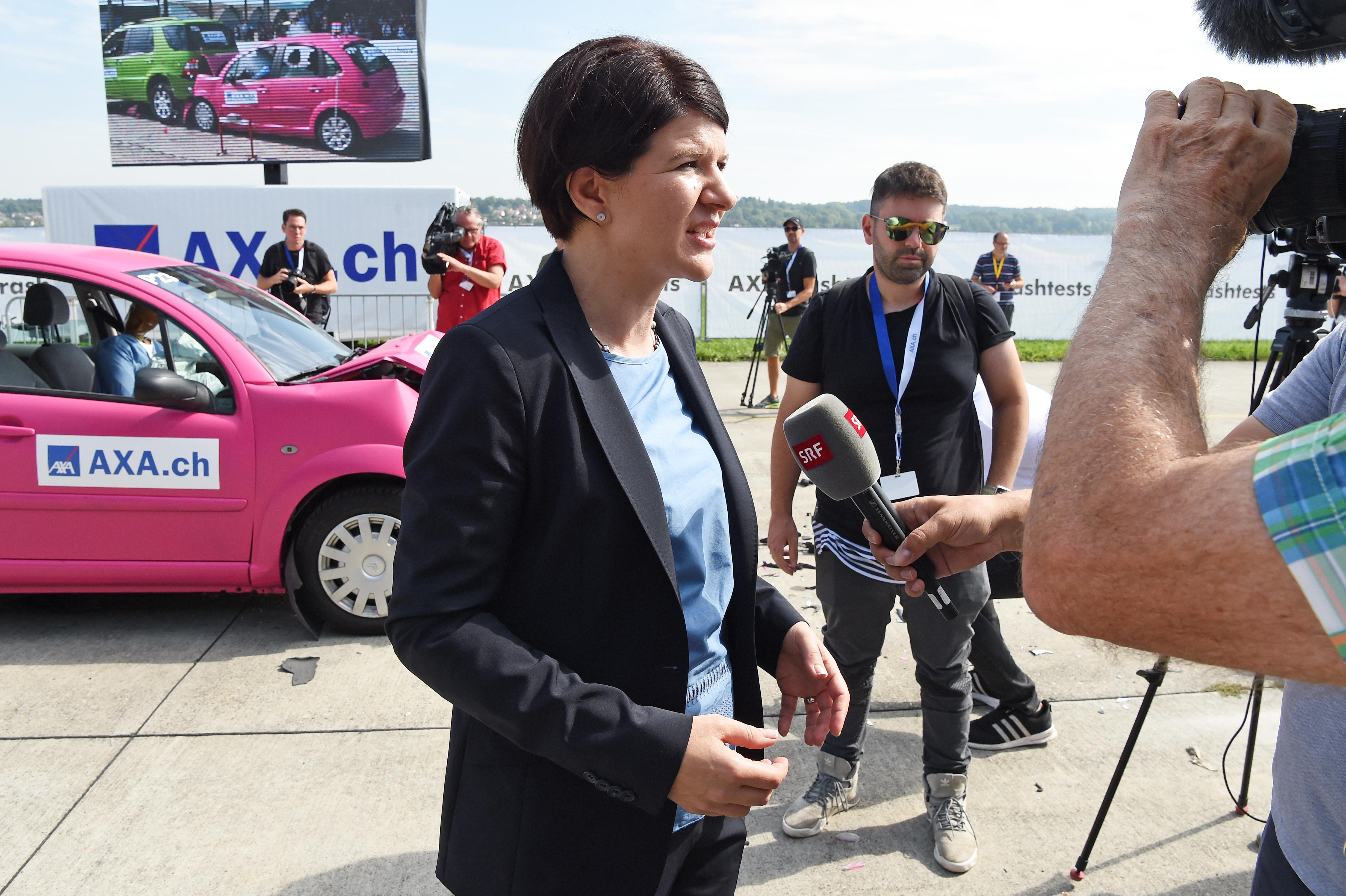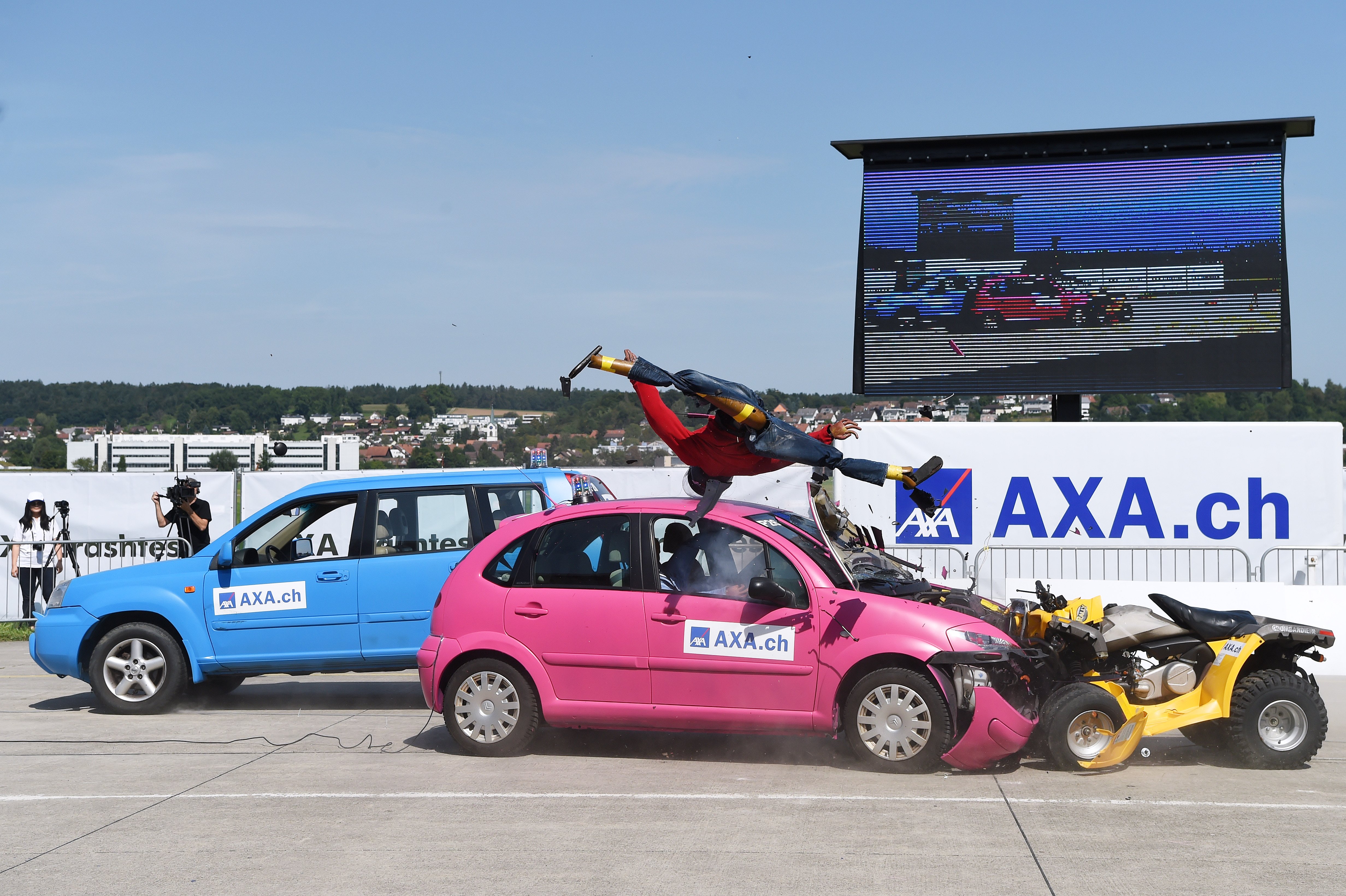“A degree in physics opens many doors”

Many young researchers are concerned about their professional future. The newsletter InsiderS by the National Centre of Competence in Research PlanetS presents physicists who have made a career outside the university. Bettina Zahnd is head of Accident Research and Prevention at the AXA Insurance Group in Winterthur. “Those who have studied physics have many abilities: logical thinking, a flair for numbers and quick comprehension skills. That helps enormously,” says the mother of two children.

Bettina Zahnd, head of Accident Research and Prevention at the AXA Insurance Group in Winterthur. (Photo Melanie Duchene/EQ Images/AXA Winterthur)
While completing her master thesis at the University of Bern, Bettina Zahnd worked on the Rosetta mission. Today she literally makes things crash: On 23 August 2018, the AXA Crash Tests will take place at Dübendorf Airport, which is a highly regarded media event every year. As head of Accident Research and Prevention at the insurance company she is in the spotlight. Communication is an important part of her job, alongside management work, the development of strategies and the optimal use of the budget. “It also takes a lot of persuasion to be able to carry out the project in a way that seems right to me,” explains Bettina Zahnd.
Bettina Zahnd actually wanted to become a high school teacher in order to be able to work part-time. “Even in kindergarten I knew that I wanted to start a family and have children,” she says. “I thought that this was only possible in the teaching profession and therefore chose to study physics.” Another reason for choosing to study physics was the fact that she was particularly interested in cosmology and space missions. She likes to remember how she participated in the construction of the ROSINA-RTOF mass spectrometer as a graduate student in the team led by astrophysics professor Kathrin Altwegg. She felt particularly comfortable in the department where scientists, engineers and mechanics worked together.

Communication is an important area of responsibility of the physicist Bettina Zahnd.(Photo Melanie Duchene/EQ Images/AXA Winterthur)
“I would have liked to have stayed in the space sector back then,” remembers Bettina Zahnd. However, she was not accepted to the graduate programme at ESA. “I went to Noordwijk without properly preparing for the job interview and sold myself extremely badly,” she says self-critically. Nor did she dare to write unsolicited applications at the time. “Looking back now, I would have done things differently,” she says, but insists that she is very satisfied with her current role. “My heart is in accident research, in prevention work. This work makes sense to me, it is the right thing,” says Bettina Zahnd, who is also President of the AXA Foundation for Prevention and a member of the Board of Trustees of the Accident Prevention Advisory Board (Beratungsstelle für Unfallverhütung, bfu).
Thinking in a three-year cycle
In 2004, she applied for a position with the insurance company and got the job. “My degree in physics opened the door,” Bettina Zahnd sums up. Physicists enjoy a particularly high reputation in the business world. “Anyone who has completed this course of study is regarded as technically competent, able to think logically, has a flair for numbers and grasps new concepts quickly.” In addition, if one gets along with others, then the matter speaks for itself. “I was so lucky.” The young physicist got on well with her boss from the start, he supported her and when he retired in 2009, Bettina Zahnd was to take over the leadership of the team, but she hesitated. “I didn’t want to have a career, I wanted to have children, albeit at a later date,” she recalls. Then a psychologist told her: “If it’s right for you for the next three years, then take the position.” Men think in such three-year cycles and by no means assume that they are bound to a task for the rest of their lives when they make a commitment.
Bettina Zahnd seized the opportunity primarily because her husband supported her. When she had her first child in 2012 and the second two years later, she remained head of Accident Research and Prevention, but reduced her workload to 60 or 70%, while her husband, an engineer at RUAG Space, works 80%. “Of course, as team leader I am always available during the week,” says the mother, who sometimes takes her children to the company when a surprise meeting is announced. “I am very flexible and happy with my family and job”.
Bettina Zahnd’s staff includes a vehicle technician, a health scientist, a former car mechanic, a marketing manager and students. “Everyone in this diverse team challenges me in a different way,” says the team leader. Although she hardly uses her knowledge of physics directly any more, the basic knowledge gained through her studies remains important. “I can ask the employees the right questions, even if I don’t know the details,” explains the physicist. Be it when installing telematic devices in cars, where electronics are involved, or in crash tests, in which the laws of conservation of momentum and energy play the decisive role.
What happens on impact

AXA Winterthur Crashtests 2017: A question of ethics? An autonomous passenger car is in a situation where an accident can no longer be prevented. The question arises as to the “right” evasive manoeuvre. (Melanie Duchene/EQ Images/AXA Winterthur)
Cars from the market are selected for the crashes, mostly vehicles around 7 years old with high mileage but a body that is intact. The images and data recorded during the collision make it possible to reconstruct the accident. They also show how vehicles have developed considerably in recent decades. “Cars from the 1980s had a very soft structure and transformed the energy into much more deformation on impact than is the case now with todays cars with hard bodies and sophisticated crashboxes,” explains the expert. But even if there is hardly a scratch to be seen, this does not mean that nothing has happened. The crash tests prove that the energy, which does not end in deformation, leads to a change in the speed of the car, which puts a particular strain on people. Here, crash tests reveal the role of the seats, headrests, belt systems or airbags.
Thanks to new technologies, the number of accidents is decreasing, says Bettina Zahnd, this is also true for the disputed cases. When experts previously reconstructed fatal accidents, in the first decade of this century it was mainly rear-end collisions with whiplash which were expensive for insurance companies. In the meantime, this topic has become less actual. Today, collisions that occur when the car is parked are also reconstructed. This type of damage can also prove costly due to the many sensors that may be destroyed in the collision.
As spectacular as the crash tests are for the spectators, prevention is the more important topic for the expert. For example, Bettina Zahnd and her team are investigating which driver assistance systems are more or less effective. “Our statistical data show that parking aids that emit beeps do not help much, while emergency brake assistants that brake independently lead to a massive reduction in accidents,” the expert sums up. Collisions are often a consequence of inattention. She is also convinced that accidents can be prevented in the long term thanks to good communication and is particularly pleased about the big “Max der Dachs” campaign with which the AXA Foundation for Prevention aims to teach children the right behaviour in road traffic.
“I am convinced that you do your job well when you enjoy the subject,” says Bettina Zahnd: “I am fortunate to have found something I love to do. This makes it is easy to advance one’s career.” In any case, a physics degree provides an ideal starting point. Many managers in companies are physicists, including the CEO and another member of the AXA Executive Board. “I know many people who have studied technical subjects and then learned business administration, like I did,” says Bettina Zahnd. However, she does not know anyone who studied physics after completing business studies.
Categories: Internal Newsletter
